What is the first job that comes to mind when you think of wildfire? If you’re like most people, an image of a wildland fire firefighter hauling a water hose through the forest comes to mind. Wildfire management is so much more than that. There is a whole team of people working together to prevent and control wildfires. One of these team members is the wildfire dispatcher. In this forestry job profile, Karianne Horton tells us about her experience as a dispatcher.

Tell me about your job.
I work for the Wildfire Management Branch in the ministry of Agriculture and Forestry. I am the Wildfire Dispatch Supervisor for the Calgary Forest Area and my role is to oversee the seasonal dispatchers in the area during the summer. There is a lot of other work associated with the role that keeps me busy through the winter!
What role do dispatchers play in wildfire management?
Dispatchers are essentially the communications link between the field staff and the duty room. The duty room is the hub of decision making during fire season. Experienced Wildfire Technicians and Rangers will rotate as the duty officer weekly and serve as the person that the dispatchers report to for operations.
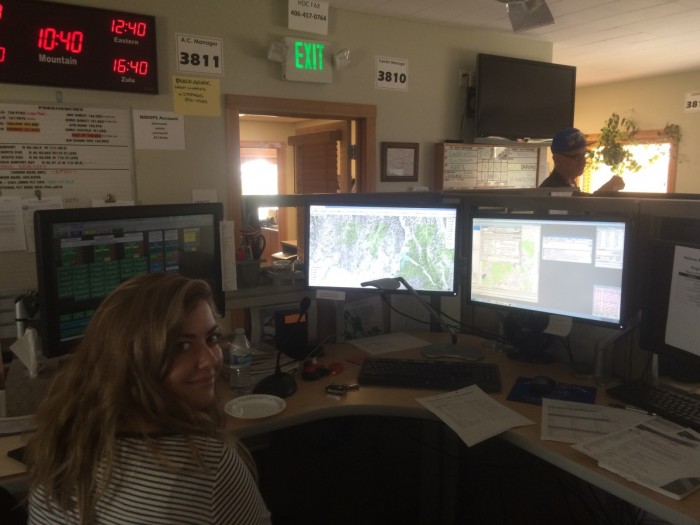
What made you decide to take this career path?
I found out about the world of wildfire management by complete chance through a friend I hadn’t seen in years. When I applied, my intention was to work maybe one or two seasons, do some travelling, and then go to school. I ended up loving the job and worked 5 seasons before applying for the Dispatch Supervisor position in 2014. Just like that, I’m headed into my 8th season!
Where do wildfire dispatchers work?
There are 10 forest areas in Alberta that hire wildfire dispatchers. The majority of times, dispatchers are working in the office and managing all the operational communications for the forest area. When required, dispatchers will be sent to large wildfires as radio operators. Radio operators take the work load off the area dispatchers in doing all radio communications for a specific fire or group of fires. This could be anywhere around the province!
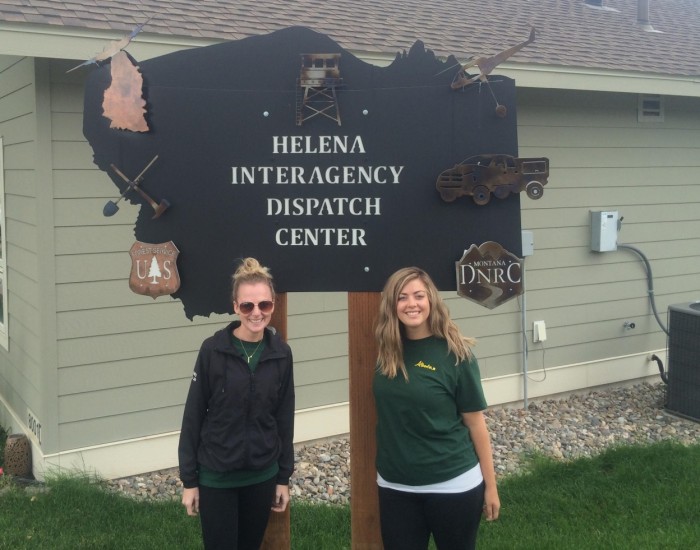
What does a typical day/week look like for you?
It’s hard to say… there really is no typical! Every day or week is dependent on the fire hazard. If it’s high hazard, the whole area is ramping up to prepare for the potential of wildfires. We call this “manup”. The duty officer will decide what is required and we will help him make that happen! As a dispatcher, I’m responsible for tracking all of the firefighting resources that are on manup in the area. All of this happens before we even get a report of a potential wildfire. Once we do get a report or multiple reports, the dispatchers work in conjunction with the duty officer to plot locations and respond to each smoke in a timely manner.
How long does a typical wildfire season span?
Fire season is from March 1 to October 31.
What aspects of your job do you enjoy the most?
The diversity – every season is different! Different challenges, different people, and different opportunities. I enjoy the fact that the season ends and that I have 4 months of more steady and predictable hours, but by March I can’t wait for the season to start and to have all the seasonal staff back! The people I have connected with in this job have become some of my greatest friends.
What is the coolest thing you’ve been able to do?
This past fire season was full of some of my best experiences so far. One highlight was flying to each of the lookouts along the Rockies to visit the lookout personnel who I’m in regular contact with. Not only was it spectacular views, but to put a face to some my coworkers who I had spoken to for years but had never met had huge value! Another highlight was being sent to Montana to assist in the Helena Interagency Dispatch Center. It was a unique experience in a very different jurisdiction.
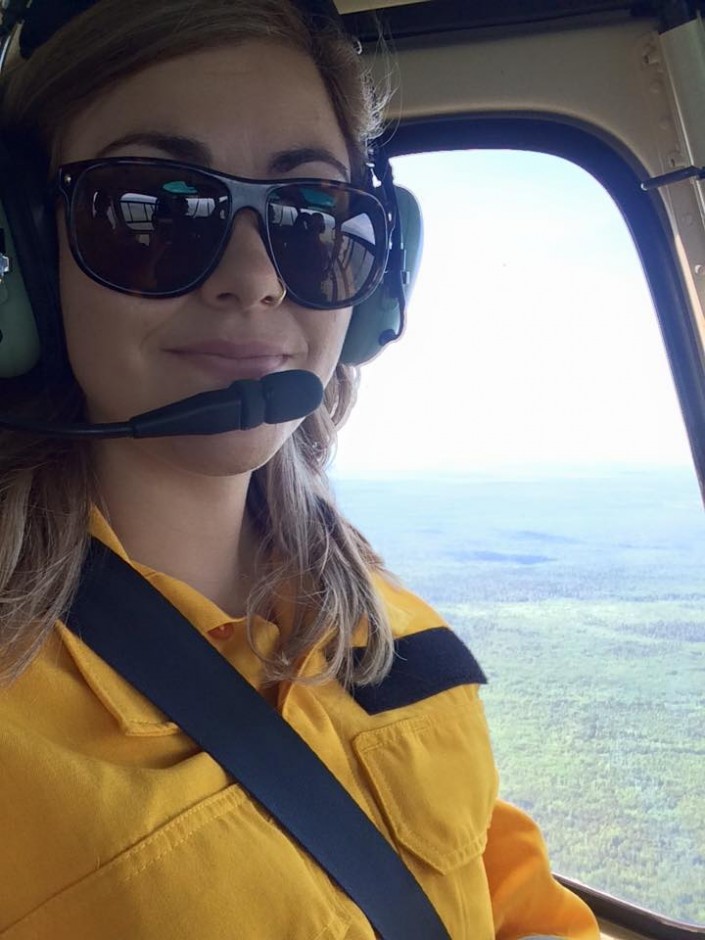
What are some of the challenges you have faced?
One of the main challenges of the job is the unpredictability of my summer schedule. Fire doesn’t care if I would really like to have this weekend off! But all it takes is having the right mentality and understanding of the job and working the overtime isn’t so bad!
Describe the pace of your job.
Dispatch is a position of extremes. Extreme busy, where there aren’t enough hours in the day or days in the week to keep up with the work load, and extreme slows, where your normal daily tasks may not take you through a full 8 hour day. That can be challenging, but oftentimes, the break is needed. It just takes some extra creativity and self-motivation to keep busy.
What qualities make up an ideal candidate for a wildfire dispatcher?
One important quality in my mind is someone who is a team player. There is no part of this job in which you are working completely independently – your work will always affect someone directly. Another is someone who can handle a high-paced and stressful environment. Someone who will rely on their training to navigate situations and not give up!
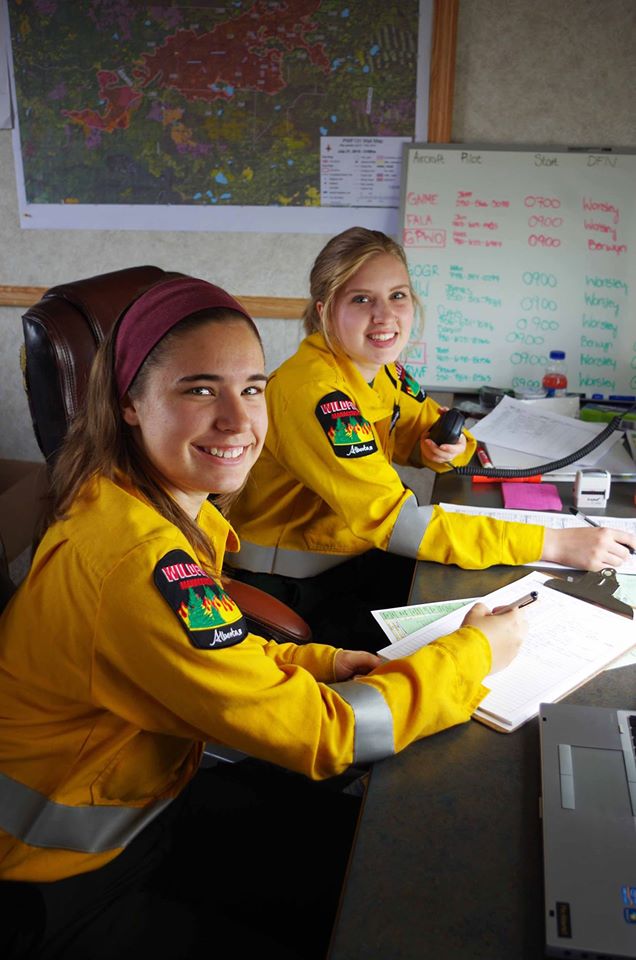
What are some of your favourite aspects of working in wildfire management?
One major aspect of wildfire management that I enjoy is the fact that whether from Alberta, BC, New Zealand, California, or South Africa, we can come together and work for the same purpose. There may be a few differences, but the end goal is the same. There is a great sense of camaraderie.
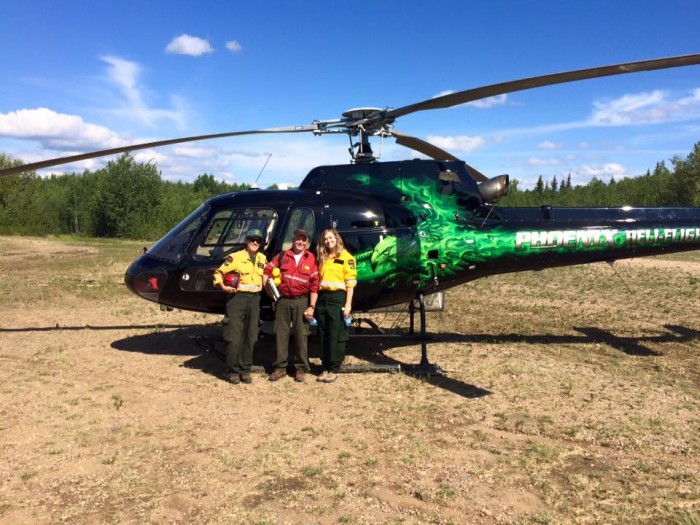
What do you do in the off-season?
I work for Wildfire Management year round, but because it slows down so much, I’m able to take a bit of time off to enjoy some travelling here and there as well as ski season!
What advice do you have for someone considering becoming a wildfire dispatcher?
Understand the commitment. If you understand that the summer is for wildfire and days off are not set in stone, you’ll have a great summer! If you come in with high expectations of normal summer vacation, you may find yourself a little disappointed. It’s an experience worth having! You never know the doors it could open.
________
If you are interested in wildfire dispatcher and other Wildfire Management positions, visit the Alberta Wildfire site.